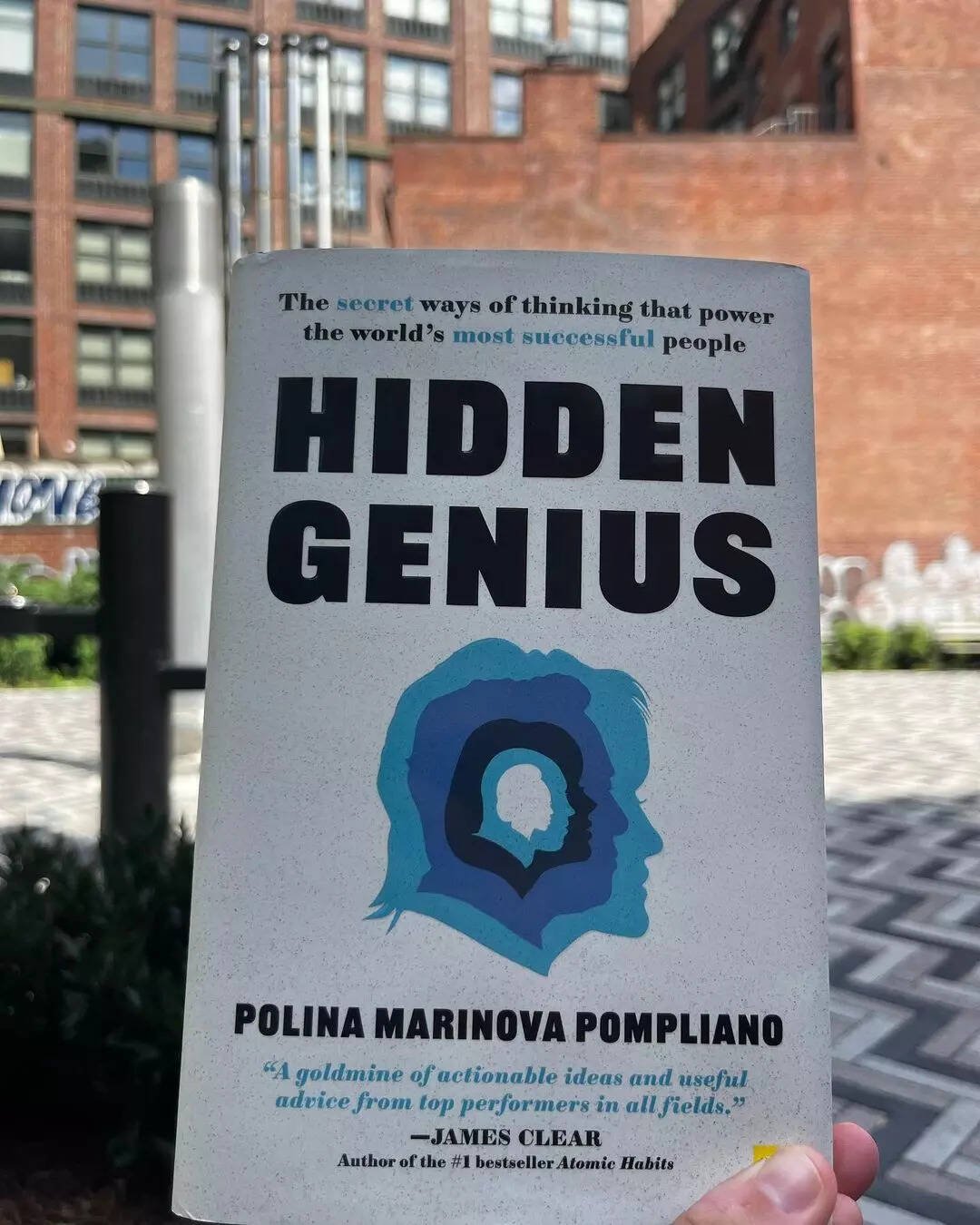Ethics & Policy
Morgan Housel Book Recommendations: 20 Life-Changing Books Recommended by Morgan Housel

20 Life-Changing Books Recommended by Morgan Housel (Picture Credit – Instagram)
Morgan Housel, author of ‘The Psychology of Money’ and a respected voice in finance and investment, emphasizes the importance of diverse perspectives in shaping one’s understanding of the world. Housel’s book recommendations reflect this philosophy, offering readers a blend of financial wisdom, personal growth, and historical insights. Here are 20 books Housel suggests that could change your perspective on life, business, and decision-making.
1. When Breath Becomes Air by Paul Kalanithi
This memoir by neurosurgeon Paul Kalanithi is a profound meditation on life and mortality. After being diagnosed with terminal cancer, Kalanithi reflects on his career, personal struggles, and the existential questions that come with facing death. His writing is poignant and offers deep insights into how we can live a meaningful life. It encourages readers to cherish their moments and face life’s inevitable uncertainties with courage.
2. Endurance: Shackleton’s Incredible Voyage by Alfred Lansing
Alfred Lansing’s ‘Endurance’ is the gripping true story of Sir Ernest Shackleton’s Antarctic expedition. Lansing masterfully recounts how Shackleton and his crew survived after their ship, the ‘Endurance’, was trapped and destroyed by ice. Their ordeal is a testament to human resilience and leadership in the face of extreme adversity. Housel often refers to this book to highlight perseverance and decision-making under pressure.

3. The Molecule of More by Daniel Z. Lieberman and Michael E. Long
This book dives deep into how dopamine, the “pleasure molecule,” shapes human motivation, desire, and decision-making. Lieberman and Long explain the neuroscience behind how dopamine fuels our quest for more — be it success, love, or wealth. ‘The Molecule of More’ provides a fascinating look into how our brain chemistry influences our behaviours and choices, helping readers understand the psychology behind striving for more in life.
4. The Quest of the Simple Life by William James Dawson
Originally published in 1907, ‘The Quest of the Simple Life’ tells the story of William Dawson’s decision to leave the busy city for a more peaceful life in the English countryside. Dawson’s reflections on simplicity, contentment, and escaping the pressures of modern life resonate deeply today. The book offers timeless lessons on the balance between ambition and contentment, perfect for those seeking a simpler, more intentional life.
5. Soul in the Game by Vitaliy Katsenelson
In ‘Soul in the Game’, investment expert Vitaliy Katsenelson shares life lessons through the lens of Stoic philosophy, art, and finance. Katsenelson argues that true success is not about external achievements but about finding meaning and purpose in what you do. His reflections on balancing work, life, and personal fulfilment offer readers a thoughtful approach to crafting a life worth living.

6. Charlie Munger: The Complete Investor by Tren Griffin
This insightful book distils the life lessons and investment strategies of Charlie Munger, Warren Buffett’s business partner. ‘Charlie Munger: The Complete Investor’ highlights Munger’s rational decision-making, intellectual rigour, and long-term thinking, providing readers with practical strategies for investing and living. Munger’s principles on patience, diversification, and the importance of ethics in business make this a must-read for anyone interested in finance and personal development.
7. Bird by Bird: Some Instructions on Writing and Life by Anne Lamott
Anne Lamott’s ‘Bird by Bird’ is a beloved guide to writing and creativity. While its focus is on the craft of writing, Lamott’s wisdom extends far beyond the page, offering life lessons on perseverance, handling self-doubt, and finding joy in the creative process. Whether you’re a writer or simply looking for guidance on navigating the ups and downs of life, this book is an inspiring and comforting companion.
8. Hidden Genius by Polina Marinova Pompliano
Polina Marinova Pompliano, founder of ‘The Profile’, explores the traits that make high achievers successful in ‘Hidden Genius’. Through stories of entrepreneurs, athletes, and innovators, Pompliano shows how grit, perseverance, and adaptability lead to exceptional results. This book provides actionable takeaways for readers looking to unlock their own hidden potential and approach challenges with a growth mindset.

9. Clear Thinking by Shane Parrish
Shane Parrish, founder of ‘Farnam Street’, teaches how to make better decisions with ‘Clear Thinking’. Drawing on mental models and cognitive strategies, Parrish offers readers tools to improve their problem-solving abilities, reduce biases, and think more critically. This book encourages readers to approach challenges with clarity and purpose, making it an essential read for those looking to enhance their decision-making process.
10. The Great Depression: A Diary by Benjamin Roth
Benjamin Roth’s ‘The Great Depression: A Diary’ offers a firsthand account of the economic devastation during the Great Depression, as seen through the eyes of a small-town lawyer. Roth’s reflections on the era’s financial turmoil, human resilience, and lessons for investors today make it a compelling read for anyone interested in economic history and the impact of market cycles on human behaviour.
11. The Science of Storytelling by Will Storr
Will Storr’s ‘The Science of Storytelling’ is an exploration of why humans are hardwired to connect with stories. Storr blends psychology, neuroscience, and storytelling craft to explain why stories have such a profound impact on our emotions and decisions. For anyone looking to understand the art of communication and storytelling, this book provides practical insights that can be applied in both personal and professional life.
12. Breath: The New Science of a Lost Art by James Nestor
In ‘Breath’, James Nestor takes readers on a fascinating journey into the science of breathing. Through extensive research and personal experimentation, Nestor explores how breathing techniques can improve our health, athletic performance, and mental well-being. The book is a blend of science, history, and practical advice, offering readers the tools to reclaim a healthier, more mindful way of breathing and living.

13. Just Keep Buying by Nick Maggiulli
Nick Maggiulli’s ‘Just Keep Buying’ offers a straightforward yet effective approach to personal finance. Through data-driven insights, Maggiulli outlines how consistent investing and smart financial habits lead to long-term wealth creation. Whether you’re a beginner or an experienced investor, this book simplifies complex financial concepts, empowering readers to build wealth steadily over time. Housel recommends it for its practical, no-nonsense advice on growing your financial future.
14. The Wright Brothers by David McCullough
David McCullough’s biography of the Wright brothers chronicles their journey from bicycle mechanics to aviation pioneers. Through persistence, ingenuity, and a relentless pursuit of their dreams, the Wright brothers changed the course of history. McCullough’s storytelling vividly brings their journey to life, making it a source of inspiration for anyone striving to turn their passion into reality.
15. The Big Change: America Transforms Itself, 1900–1950 by Frederick Lewis Allen
In ‘The Big Change’, Frederick Lewis Allen provides a sweeping history of the social, political, and economic transformations that took place in America between 1900 and 1950. From the rise of industry to the impact of the Great Depression and World War II, this book captures the dramatic shifts that shaped modern America. It’s a must-read for those interested in how societal changes impact everyday life and economics.
16. The Patriarch by David Nasaw
David Nasaw’s biography of Joseph P. Kennedy, ‘The Patriarch’, provides a detailed account of one of America’s most influential and controversial figures. As the father of John F. Kennedy and a key player in finance, politics, and film, Joseph Kennedy’s life offers valuable lessons in ambition, power, and legacy. Nasaw’s exhaustive research provides a nuanced portrait of a man who left a lasting mark on American history.

17. Rocket Men by Robert Kurson
‘Rocket Men’ by Robert Kurson recounts the daring Apollo 8 mission, the first manned spacecraft to orbit the moon. Through meticulous research and gripping storytelling, Kurson takes readers inside the lives of the astronauts and the groundbreaking mission that changed space exploration. This thrilling tale of human ingenuity and courage is perfect for readers fascinated by science, history, and the spirit of adventure.
18. Famous Financial Fiascos by John Train
John Train’s ‘Famous Financial Fiascos’ explores some of the biggest blunders in financial history, from the South Sea Bubble to Enron. Through detailed case studies, Train highlights the lessons investors can learn from these catastrophic failures. Housel recommends this book as a reminder that history often repeats itself, and understanding past mistakes can help prevent future ones.
19. The Choice: Embrace the Possible by Dr. Edith Eva Eger
Dr. Edith Eva Eger’s memoir, ‘The Choice’, is a remarkable story of survival and resilience. As a Holocaust survivor, Eger shares her journey from trauma to healing, offering readers a powerful message of hope and the ability to choose one’s mindset in the face of adversity. Housel highlights this book for its profound life lessons on overcoming challenges and embracing personal growth.

20. The Algebra of Wealth by Scott Galloway
Scott Galloway’s ‘The Algebra of Wealth’ breaks down the key principles of financial success through the lenses of hard work, ambition, and luck. Galloway blends his signature wit with practical advice on building wealth, managing risk, and achieving long-term financial security. It’s a no-nonsense guide that provides readers with the tools to build lasting wealth by understanding the broader financial landscape and seizing opportunities as they arise.
Morgan Housel’s reading list offers profound insights into life, wealth, history, and the human condition. Whether you’re looking to deepen your understanding of finance or broaden your personal worldview, these 20 books provide a treasure trove of knowledge. From reflections on mortality to actionable investment advice, these reads will leave a lasting impact, helping you build a well-rounded perspective that you can carry through your personal and professional life. Make time to immerse yourself in these books, and the lessons they provide will stay with you for years to come.
Ethics & Policy
Chile faces national debate as proposed bill to regulate AI use advances

“It’s not that a country like Chile aspires to have a seat at the table with the world’s greatest powers, but rather that it already has one,” stated Aisén Etcheverry, Chile’s Minister of Science, Technology, Knowledge and Innovation earlier this year in an interview with France 24.
Her words capture Chile’s growing ambition to advance a pioneering bill to regulate artificial intelligence (AI), sparking a national debate over how to balance innovation with ethics.
The Latin American Artificial Intelligence Index (ILIA) recently confirmed Chile as the regional leader in AI thanks to high levels of investment in technological infrastructure, training programmes and supporting policies.
However, as President Gabriel Boric’s government seeks to expand the use of AI to drive modernization and sustainable growth in the country, there has been a sustained focus on discussions around implementing AI regulations to promote an “ethical, transparent and responsible use of AI for the benefit of all.”
“Some companies see regulations as an opportunity to grow, while others view it as a burden. But in the long run, those who resist innovation will lose ground in the market,” said Sebastian Martinez, General Manager at Nisum Chile, a technology consulting and software development company, while in conversation with Latin America Reports.
The government’s proposed AI Regulation bill, first introduced to Congress in May 2024, was approved by the Chamber of Deputies on August 4, 2025, and has proceeded to the Committee of Future, Science, Technology, Knowledge, and Innovation to widen the conversation by drawing on the views of experts from the public, private, academic and civil society sectors.
Whilst the government maintains that the implementation of this bill would promote innovation and responsible development aligned with international standards, critics warn that tight regulation could instead hinder the technological progress the country aims to achieve.
“Artificial intelligence isn’t a threat; it’s a tool. But unless we invest in educating people about it, fear will dominate, and Chile will miss out on the benefits this technology can bring,” Martinez noted.
The proposed AI regulation bill
President Boric has consistently emphasised the importance of investing in artificial intelligence as a key driver of development in Chile and Latin America, placing ambition, innovation and informed decision-making at the heart of his government’s approach.
Whilst acknowledging the risks posed by AI, the president has underscored the human role and responsibility in regulating advanced technologies to ensure ethical practice.
Speaking at the Congreso Futuro 2024 forum on artificial intelligence, Boric stated: “It is necessary to accompany its development with deep ethical reflection.”
These comments were made shortly before his government introduced its proposed bill on May 7, 2024, aimed at ensuring that the development and use of AI in Chile respects citizens’ rights while also promoting innovation and strengthening the state’s capacity to respond to the risks and challenges posed by the technology.
The bill is aligned with UNESCO’s Recommendation on the Ethics of AI, a framework that guided Chile in becoming the first country worldwide to apply and complete UNESCO’s Readiness Assessment Methodology (RAM).
Audrey Azoulay, Director-General of UNESCO, praised the initiative, stating: “Chile has emerged as a global leader in ethical AI governance, and we are proud that UNESCO has played an essential role in helping achieve this landmark.”
If approved, the bill aims to boost innovation in the business sector, supporting small and medium-sized enterprises (SMEs) especially, by fostering the technological conditions needed for growth, whilst maintaining regulatory oversight of AI systems.
The proposal also seeks to protect Chileans from algorithmic discrimination, a lack of transparency in AI interactions, as well as AI decision-making that could affect fundamental rights in areas such as healthcare, education, law and finance.
Chile’s approach to regulating AI
Chile’s proposed AI regulation adopts a risk-based framework, similar to the EU AI Act, classifying systems into four categories: unacceptable risk, high risk, limited risk, and no evident risk.
Under the proposal, AI systems considered to pose an unacceptable risk would be strictly banned. This includes technologies that undermine human dignity, such as those generating deepfakes or sexual content that exploits vulnerable groups like children and teenagers.
The bill also prohibits systems designed to manipulate emotions and influence decisions without informed consent, as well as those that collect or process facial biometric data without explicit permission.
High-risk AI systems are those that could significantly impact health, safety, fundamental constitutional rights, the environment, or consumer rights. AI tools used in recruitment processes to screen and filter job applications, for instance, fall under this category due to their potential bias and discrimination.
Those deemed to pose limited risk include AI systems that present minimal potential for manipulation, deception, or error in user interactions — such as public service chatbots that respond to queries within its area of competence. At the lowest tier, systems considered to carry no evident risk are tools like recommendation engines for films or music, technologies that under no circumstance pose harm to fundamental rights.
Under this model, AI systems will not require pre-market certification or review. Instead, each company is responsible for assessing and classifying its own systems, according to the established risk categories.
As explained by Minister Etcheverry, cases of non-compliance will lead to administrative sanctions imposed by the future Chilean Data Protection Agency, with decisions open to appeal before the country’s courts.
Innovation or limitation?
Whilst many actors in the public, private and civil society sectors support the proposed AI bill for its emphasis on responsible and ethical use of technology, experts have also raised concerns regarding the risk-based framework’s close alignment with EU standards and the potential bureaucracy that this model could introduce.
Sebastián Dueñas, researcher at the Law, Science and Technology Program at Pontificia Universidad Católica de Chile (UC), criticized the framework for its strict regulations and vague definition of what constitutes a “high-risk” system. He warned that such ambiguity could stifle innovation, discouraging developers who fear heavy sanctions.
The framework’s similarity to the EU AI Act has also raised doubts given the substantial differences between the Chilean context and that of the EU. Matías Aránguiz, professor at the Faculty of Law and deputy director of the Law, Science and Technology Program at UC, highlighted the disparity in budget and personnel as a major challenge in effectively implementing a similar risk-based regulatory approach in Chile.
In August, the Santiago Chamber of Commerce, a non-profit trade association representing over 2,500 companies across Chile’s key economic sectors, expressed concern about the bill’s potential impact.
The association warned that the rigidity of the proposed risk-based framework could negatively affect technological development, investment, and national competitiveness.
The association emphasized the need to foster responsible AI development in Chile whilst avoiding overly restrictive regulations that could limit innovation and the technology’s transformative potential.
Echoing this view, Dueñas commented: “Regulating AI is necessary, but doing so with the same rigidity as the European Union—just as they are trying to soften their own framework—would only add friction to Chilean development.”
For Martinez, on the other hand, what’s most needed is investment, rather than regulation. “Chile urgently needs to invest in AI. Without it, we risk falling further behind the U.S., and the gap between our markets will only continue to widen,” he stressed.
The government’s proposed AI regulation bill reflects more than two years of collaborative work, with input from the national AI Expert Committee, congressional commissions and members of both academia and civil society alike.
However, the debate continues as actors from diverse sectors convened on August 14 to highlight both the progress made and the complexities that remain in navigating this technological challenge.
This article was originally published by Nadia Hussain on Latin America Reports and was re-published with permission.
Ethics & Policy
Personalization and Ethics by 2025

The Rise of AI in Tailored Customer Experiences
In the fast-evolving world of marketing, artificial intelligence is reshaping how brands connect with consumers, particularly through hyper-personalized strategies that anticipate needs before they’re even voiced. As we approach 2025, companies are leveraging AI to analyze vast datasets, from browsing histories to purchase patterns, creating experiences that feel uniquely individual. This shift isn’t just about efficiency; it’s about building loyalty in an era where generic ads no longer cut through the noise.
Take Netflix, for instance, which uses AI algorithms to recommend content based on viewing habits, a model that’s inspired countless marketers. Similarly, e-commerce giants like Amazon employ predictive analytics to suggest products, boosting conversion rates significantly. According to insights from HubSpot’s blog on AI personalization strategies, these tactics can increase customer engagement by up to 20%, emphasizing the need for real-time data processing to deliver relevant offers instantaneously.
Predictive Analytics and Real-Time Adaptation
Predictive analytics stands at the forefront of this transformation, enabling marketers to forecast consumer behavior with remarkable accuracy. By 2025, AI tools are expected to integrate seamlessly with customer relationship management systems, allowing for dynamic content adjustments on the fly. For example, if a user abandons a cart, AI can trigger personalized emails with tailored discounts, drawing from past interactions to optimize timing and messaging.
Recent reports highlight this trend’s momentum. A piece from ContentGrip notes that the global AI in marketing market is projected to hit $47.32 billion in 2025, driven by a 36.6% compound annual growth rate. This growth underscores how AI isn’t merely automating tasks but enhancing strategic decision-making, with 88% of marketers already incorporating it into daily workflows.
Ethical Considerations in Data-Driven Personalization
Yet, as AI delves deeper into personalization, ethical concerns loom large. Privacy regulations like GDPR and emerging U.S. laws demand transparent data usage, pushing brands to balance customization with consent. Marketers must ensure algorithms avoid biases that could alienate segments of their audience, a point stressed in discussions on X where users debate AI’s role in fair marketing practices.
McKinsey’s analysis in their report on the next frontier of personalized marketing warns that without ethical frameworks, trust could erode. They advocate for generative AI to craft tailored narratives while respecting user boundaries, a strategy that’s gaining traction among industry leaders.
Integration with Emerging Technologies
Looking ahead, AI personalization is merging with technologies like augmented reality and voice search to create immersive experiences. Imagine virtual try-ons personalized via AI, or voice assistants recommending products based on conversational cues. Trends from ON24’s predictions for 2025 suggest that machine learning will refine these interactions, anticipating needs through pattern recognition and delivering hyper-dynamic content.
News from WebProNews echoes this, detailing how AI-driven strategies in sales and marketing are focusing on sustainability and data privacy for 2025. Their article on digital marketing trends highlights omnichannel optimization, where AI forecasts engagement across platforms, blending automation with human creativity for agile campaigns.
Challenges and Future Outlook
Despite the promise, challenges persist, including the high costs of AI implementation and the need for skilled talent. Small businesses, in particular, may struggle to compete, but accessible tools from providers like Google and IBM are democratizing access. Posts on X from influencers like Greg Isenberg discuss “vibe marketing,” where AI agents generate content calendars, revolutionizing planning and testing.
Ultimately, as Dotdigital’s blog on personalization in 2025 posits, the key lies in combining AI insights with authentic connections. Brands that master this will not only personalize but humanize their marketing, fostering long-term relationships in a data-saturated world. With innovations accelerating, 2025 could mark the pinnacle of customer-centric strategies, where AI turns every interaction into a meaningful dialogue.
Ethics & Policy
Shaping Global AI Governance at the 80th UNGA

Global AI governance is currently at a critical juncture. Rapid advancements in technology are presenting exciting opportunities but also significant challenges. The rise of AI agents — AI systems that can reason, plan, and take direct action — makes strong international cooperation more crucial than ever. To create safer and more responsible AI that benefits people and society, we must work collectively on a global scale.
Partnership on AI (PAI) has been deeply engaged in these conversations, bridging the gap between AI development and responsible policy.
Our team has crossed the globe, connecting with partners and collaborators at key events this year, from the AI Action Summit in Paris, to the World AI Conference in Shanghai, and the Global AI Summit on Africa in Kigali. This builds on the discussion at PAI’s 2024 Policy Forum and the Policy Alignment on AI Transparency report published last October, both of which explored how AI governance efforts align with one another and highlighted the need for international cooperation and coordination on AI policy.
Our journey now takes us next to the 80th session of the United Nations General Assembly (UNGA), taking place in New York this week.
In addition to marking the 80th anniversary of the UN, this year’s UNGA is a call for renewed commitment to multilateralism. It also serves as the official launch of the new UN Global Dialogue on AI Governance. The UN is a crucial piece of the global AI governance puzzle, as a universal and inclusive forum where every nation, regardless of size or influence, has a voice in shaping the future of this technology.
To celebrate this milestone anniversary, PAI is bringing together its community of Partners, policymakers, and other stakeholders for a series of events alongside the UNGA. This is a pivotal moment that demands increased global cooperation amid a challenging geopolitical environment. Our community has identified two particularly important and challenging areas for global AI governance this year:
- The opportunities and challenges of AI agents (with 2025 dubbed the “year of agents”) across different fields, including AI safety, human connection, and public policy
- The need to build a more robust global AI assurance ecosystem; AI assurance being defined as the process to assess whether an AI system or model is trustworthy
To inform these important discussions and build on our support for the UN Global Digital Compact, PAI is bringing both topics to the attention of the community of UN stakeholders through a series of UNGA side events and publications on both issues. The issues align with the mandates of two new UN AI mechanisms: the UN Independent International Scientific Panel on AI and the Global Dialogue.
The Scientific Panel is tasked with issuing “evidence-based scientific assessments” that synthesize and analyze existing research on the opportunities, risks, and impacts of AI.
Meanwhile, the role of the Global Dialogue is to discuss international cooperation, share best practices and lessons learned, and to facilitate discussions on AI governance to advance the sustainable development goals (SDGs), including on the development of trustworthy AI systems; the protection of human rights in the field of AI; and transparency, accountability, and human oversight consistent with international law.
AI agents are a new research topic that the international community needs to better understand, considering opportunities and potential risks in areas such as human oversight, transparency, and human rights. We expect this topic to be taken up by the Scientific Panel and brought to the attention of the Global Dialogue.
PAI’s work on AI agents includes three key publications:
- A Real-time Failure Detection Framework that provides guidance on how to monitor and thereby prevent critical failures in the deployment of autonomous AI agents, which could lead to hazards or real-world incidents that can harm people, disrupt infrastructure, or violate human rights.
- An International Policy Brief that offers anticipatory guidance on how to manage the potential cross-border harms and human rights impacts of AI agents, leveraging foundational global governance tools, i.e., international law, non-binding global norms, and global accountability mechanisms.
- A Policy Research Agenda that outlines priority questions that policymakers and the scientific community should explore to ensure that we govern AI agents in an informed manner domestically, regionally, and globally.
At the same time, we believe a robust AI assurance ecosystem is crucial to enabling trust and unlocking opportunities for adoption in line with the SDGs and international law. Both the Scientific Panel and the Global Dialogue can help fill significant research and implementation gaps in this area.
Looking ahead, we will expand our focus on AI assurance, with plans to publish a white paper, progress report, and international policy brief at the end of 2025 and early 2026. These publications will touch on issues ranging from the challenges to effective AI assurance, such as insufficient incentives and access to documentation, to AI assurance needs in the Global South.
We hope these contributions will not only inform discussions at the UN but also in other important international AI governance forums, including the OECD’s Global Partnership on AI Expert Group Meeting in November, the G20 Summit in November, and the AI Impact Summit in India next year.
The global conversation on AI governance is still in the early stages, and PAI is committed to ensuring that it is an inclusive, informed, and effective one. To stay up to date on our work in this area, sign up for our newsletter.
-

 Business3 weeks ago
Business3 weeks agoThe Guardian view on Trump and the Fed: independence is no substitute for accountability | Editorial
-
Tools & Platforms1 month ago
Building Trust in Military AI Starts with Opening the Black Box – War on the Rocks
-

 Ethics & Policy2 months ago
Ethics & Policy2 months agoSDAIA Supports Saudi Arabia’s Leadership in Shaping Global AI Ethics, Policy, and Research – وكالة الأنباء السعودية
-

 Events & Conferences4 months ago
Events & Conferences4 months agoJourney to 1000 models: Scaling Instagram’s recommendation system
-

 Jobs & Careers3 months ago
Jobs & Careers3 months agoMumbai-based Perplexity Alternative Has 60k+ Users Without Funding
-

 Podcasts & Talks2 months ago
Podcasts & Talks2 months agoHappy 4th of July! 🎆 Made with Veo 3 in Gemini
-

 Education3 months ago
Education3 months agoVEX Robotics launches AI-powered classroom robotics system
-

 Education2 months ago
Education2 months agoMacron says UK and France have duty to tackle illegal migration ‘with humanity, solidarity and firmness’ – UK politics live | Politics
-

 Podcasts & Talks2 months ago
Podcasts & Talks2 months agoOpenAI 🤝 @teamganassi
-

 Funding & Business3 months ago
Funding & Business3 months agoKayak and Expedia race to build AI travel agents that turn social posts into itineraries





















